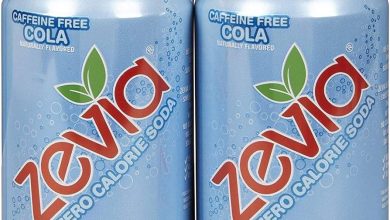Grape Juice (Dark, Canned) – Nutritional Information & Ingredient Details
Grape juice, particularly the dark variety found in canned form, is a popular and refreshing beverage known for its natural sweetness and vibrant color. Made from ripe grapes, it offers a delightful burst of flavor and a range of nutrients that can contribute to a well-rounded diet. While grape juice is commonly enjoyed on its own, it also serves as a versatile ingredient for various culinary applications, from sauces and dressings to smoothies and desserts.
Ingredients Table
| Nutrient | Amount per 100g |
|---|---|
| Energy | 57.0 kcal |
| Protein | 0.0 g |
| Total Fat | 0.0 g |
| Saturated Fat | 0.0 g |
| Carbohydrates | 14.55 g |
| Fiber | 0.1 g |
| Sugar | 14.11 g |
| Calcium | 7.0 mg |
| Iron | 0.13 mg |
| Magnesium | 6.0 mg |
| Phosphorus | 6.0 mg |
| Potassium | 33.0 mg |
| Sodium | 9.0 mg |
| Zinc | 0.03 mg |
| Copper | 0.022 mcg |
| Manganese | 0.2 mg |
| Selenium | 0.1 mcg |
| Vitamin C | 26.5 mg |
| Thiamine (Vitamin B1) | 0.225 mg |
| Riboflavin (Vitamin B2) | 0.354 mg |
| Niacin (Vitamin B3) | 0.142 mg |
| Vitamin B6 | 0.035 mg |
| Folate (Vitamin B9) | 1.0 mcg |
| Vitamin B12 | 0.0 mcg |
| Vitamin A | 0.0 mcg |
| Vitamin E | 0.0 mg |
| Vitamin D2 | 0.0 mcg |
Allergen Information
Grape juice (dark, canned) is typically free from common allergens like gluten, dairy, nuts, soy, and eggs. However, it’s always advisable to check the label for any potential cross-contamination or added ingredients that may introduce allergens, especially if you’re consuming commercially produced grape juice, which might contain preservatives or flavor enhancers.
Dietary Preferences
- Vegan: Yes
- Vegetarian: Yes
- Gluten-Free: Yes
- Dairy-Free: Yes
- Nut-Free: Yes
- Low-Carb: Not suitable for strict low-carb diets due to its natural sugar content.
- Low-Sodium: Yes, with only 9 mg of sodium per 100g.
Nutritional Benefits
Dark grape juice is packed with nutrients that can support overall health. It provides a moderate amount of energy (57 kcal per 100g), with its primary macronutrient being carbohydrates, mostly in the form of sugars (14.11g per 100g). The beverage is naturally rich in Vitamin C (26.5 mg), which is essential for immune function, and offers a good amount of riboflavin (Vitamin B2), important for energy metabolism and cell function.
Despite its sugar content, grape juice contains little to no fat and protein, making it a refreshing but light choice for hydration. The potassium content (33 mg) is relatively low but beneficial for maintaining proper muscle and nerve function.
The beverage also contains several minerals, including calcium, iron, magnesium, and phosphorus, all of which play vital roles in bone health, oxygen transport, and energy production. Though the amounts are modest, they still contribute to maintaining good health when consumed as part of a balanced diet.
Health Considerations
While grape juice can be a delicious and beneficial part of your diet, it’s important to consume it in moderation, especially for individuals who need to manage their sugar intake or are on low-carb diets. The high sugar content (14.11 g per 100g) can cause spikes in blood sugar levels, which may not be ideal for people with diabetes or those watching their carbohydrate intake.
On the positive side, dark grape juice is often rich in antioxidants, which can help reduce oxidative stress in the body. The antioxidants found in grapes, such as flavonoids and resveratrol, are believed to contribute to heart health and may have anti-inflammatory effects.
Tips for Incorporation
- As a Hydrating Drink: Enjoy on its own as a refreshing, naturally sweet beverage. Serve chilled over ice or blend it with other fruits for a nutrient-packed smoothie.
- In Cooking and Baking: Use as a base for sauces, glazes, and marinades, particularly for meats such as chicken or pork. It can also be added to baked goods, offering moisture and a subtle fruity flavor.
- Mixed Beverages: Combine grape juice with sparkling water or soda for a simple homemade spritzer, or add a splash to cocktails for a fruity twist.
- In Salads: Mix grape juice with olive oil, mustard, and herbs to create a light vinaigrette for salads.
Conclusion
Grape juice (dark, canned) offers a convenient, nutrient-rich way to enjoy the benefits of grapes in liquid form. With its high natural sugar content, it serves as an excellent quick energy source and provides key vitamins and minerals like Vitamin C, riboflavin, and potassium. While it’s a great option for a refreshing drink or a cooking ingredient, those mindful of sugar intake should consider consuming it in moderation. As with all beverages, it’s important to enjoy grape juice as part of a balanced diet to fully appreciate its nutritional benefits.










